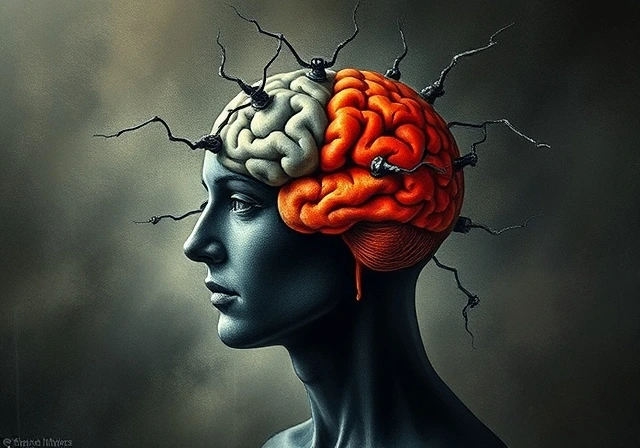Introduction
Mental health is a crucial part of overall well-being, yet it often goes unnoticed until symptoms begin interfering with daily life. Whether it’s persistent anxiety, drastic mood changes, or relationship struggles, recognizing when to seek professional help can make a transformative difference. A psychiatrist is a medical doctor trained in identifying and managing psychological disorders and can offer the guidance, treatment, and support you need. Let’s explore seven key signs that indicate it may be time to seek psychiatric assistance.
1. Persistent, Intrusive Thoughts Impacting Daily Life
It’s natural to feel anxious or sad occasionally. However, if you find that you’re consistently battling thoughts that prevent you from focusing or feeling at peace, it may be time to consult a psychiatrist. Common indicators include:
- Constant anxiety or worry about everyday situations
- Prolonged sadness lasting more than two weeks
- Intrusive or disturbing thoughts that you can’t seem to shake
- Feeling paranoid, as though someone is watching or following you
· Experiencing things that aren’t real, like hearing voices or seeing things that aren’t actually there.
2. Sleeping or Concentration Difficulties
Lack of sleep or difficulty concentrating can significantly disrupt work, relationships, and quality of life. If you’re finding it challenging to either fall asleep or stay asleep or if you struggle with maintaining focus throughout the day, it could point to a mental health condition like anxiety disorders or depression.
3. Noticeable Changes in Appetite or Weight
Drastic fluctuations in weight—whether gaining or losing—without an obvious cause might be a sign of a mental health issue. Losing interest in eating or engaging in binge eating as a coping mechanism can signal disorders such as depression, bipolar disorder, or eating disorders.
4. Relationship Challenges
Mental health issues can create significant strain on personal relationships. If you find yourself becoming more irritable, feeling isolated, or experiencing regular conflicts with family or friends, a psychiatrist can help assess underlying causes and provide support through therapy or medication.
5. Increased Dependence on Alcohol or Drugs
Using substances to cope with stress or emotional pain is a common but dangerous response. Substance abuse can often worsen mental health conditions and mask the symptoms of deeper issues, like anxiety disorders or mood disorders. Seeking help from a psychiatrist is essential to address both the addiction and its root causes.
6. Thoughts of Suicide
Feeling overwhelmed by thoughts of suicide can be incredibly isolating, but please remember, you’re not alone in this, and there are people who truly want to help you through it. If you’re experiencing suicidal thoughts, reach out to a mental health professional immediately. A psychiatrist can work with you to create a treatment plan to address these feelings safely and effectively.
7. Family History of Mental Illness
Genetics play a significant role in mental health. If you have close family members with psychological disorders like schizophrenia, bipolar disorder, or Alzheimer’s disease, you may have a heightened risk of similar issues. Seeking early intervention and preventive care from a psychiatrist can provide tools for managing or even preventing these conditions.
Wondering what happens during a visit to the psychiatrist? Here’s what you can expect.
Visiting a psychiatrist might seem daunting, especially if it’s your first time. At your first appointment, here’s what your psychiatrist will do:
- Ask about your medical history and symptoms
- Conduct a physical exam and may order tests, such as blood work or brain imaging
- Develop a personalized treatment plan that may involve therapy, medication, or both
How a Psychiatrist Can Support You
Psychiatrists offer more than just medication. They provide a structured approach to mental health that includes:
- Diagnosing your condition accurately
- Recommending tailored treatment options
- Monitoring progress and adjusting treatments as needed
- Offering educational resources and emotional support
With consistent support, many individuals find that they can manage symptoms and enjoy a higher quality of life. Don’t hesitate to reach out to professionals at Life Care Hospital Annexe, where our team is dedicated to mental health care.
Finding the Right Psychiatrist for You
Selecting a psychiatrist involves finding someone whose approach and philosophy align with your needs. Here are a few tips:
- Look for experience and training specific to your symptoms
- Look into their approach to mental health and understand their treatment philosophy.
- Confirm whether they accept your insurance
- Ensure you feel comfortable discussing your concerns with them
If the initial meeting doesn’t feel like the right fit, it’s okay to keep looking. Mental health is a journey, and finding a supportive, understanding psychiatrist can make all the difference.
Conclusion
Mental health symptoms can be subtle yet disruptive, and seeking help is a courageous step. If you or someone you know is experiencing any of the seven signs listed, don’t hesitate to talk to a medical professional. At Life Care Hospital Annexe, our psychiatrists can help diagnose, treat, and support you on the path to better mental health. Remember, early intervention is key to a healthy, balanced life.







